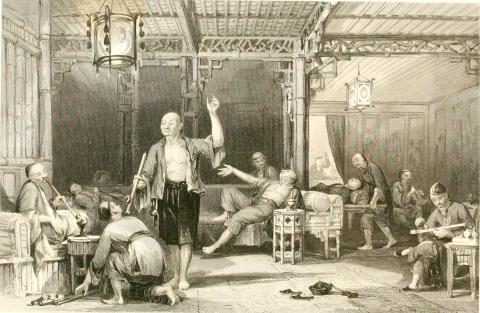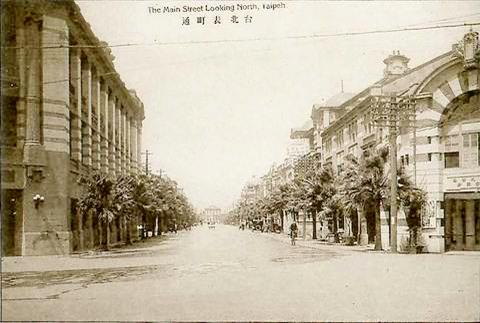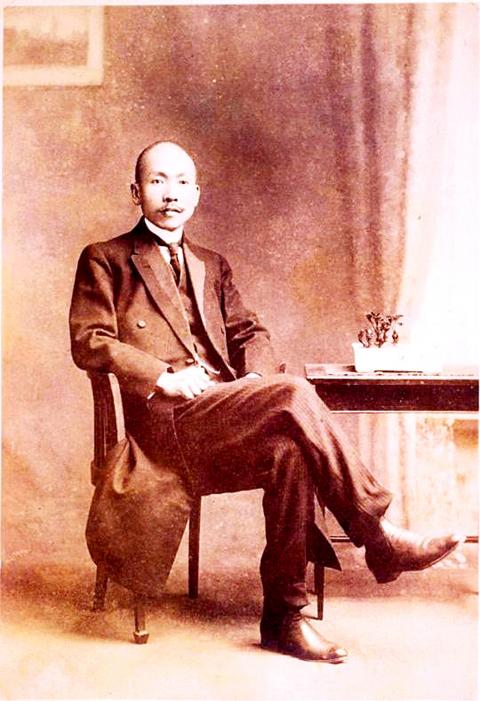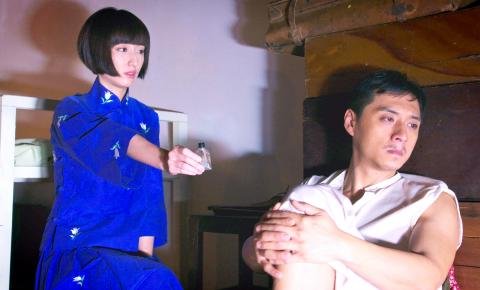Jan. 23 to Jan. 29
Chiang Sung-hui (蔣松輝) waited until the regular staff at the telegram office got off work. The remaining workers did not understand English, and this was the Taiwan People’s Party’s (台灣民眾黨) best chance to get their message, written in broken English, to the League of Nations.
The one-sentence telegram accused the Japanese colonial government of relaxing opium prohibition rules and asked the League to intervene.

Photo courtesy of Wikimedia Commons
Since the Japanese had a monopoly over the production and sale of opium in Taiwan, the party believed that they’d never had any intention of eradicating the social vice despite vowing to do so 35 years previously, in 1895.
Upon taking over Taiwan, the Japanese pushed a “gradual prohibition” policy by issuing licenses to a limited number of qualified smokers. The government seemed to be on the right track as the number of legal smokers dropped, and in 1912 they signed the International Opium Convention, which mandated that signatories “use their best endeavors to control, or to cause to be controlled, all persons manufacturing, importing, selling, distributing and exporting” drugs such as opium.
Japan stopped issuing new opium licenses in 1908, and the number of legal users dropped dramatically. The government’s opium monopoly remained lucrative as they raised prices every year, but it no longer occupied such a large proportion of the colony’s total revenue as the economy diversified.

After the 1925 Geneva Opium Convention, the government in 1928 announced plans to close down smoking locales and build addiction treatment centers. But in 1929, an amendment was added, proclaiming jail time for illegal addicts. It also announced that they could apply for a license, declaring that it was more humane.
“If we allow opium addicts to destruct on their own, it will be a dark blemish on our glorious policies,” the announcement concluded.
This sudden decision to issue licenses to about 25,000 additional users further raised suspicions among Taiwan People’s Party leaders, who had been calling for immediate prohibition for years. They started a colony-wide campaign, making public speeches and repeatedly protesting the new provisions.

Photo courtesy of Wikimedia Commons
Taiwanese physicians also joined the fight. A Tainan Medical Association petition requested that the governor-general issued additional licenses only to addicts whose lives would be threatened if cut off. They also called for medical examinations for license holders to deem whether they were treatable — and if so, they should be rehabilitated by force. They also asked the government to limit all smoking activities to state-run opium houses.
Investigators from the League of Nations arrived on Feb. 19, 1930. They were on an eight-month trip to Asia to investigate the region’s drug use, and their arrival was most likely not in direct response to the telegram. Nevertheless, despite government objections, the investigators met with party leaders Chiang Wei-shui (蔣渭水) and Lin Hsien-tang (林獻堂) on March 1 to discuss the problem further.
Although the government did not change course, Lo Ming-cheng (駱明正) writes in the book Doctors without Borders: Profession, Ethnicity and Modernity in Colonial Taiwan, the Taiwan People’s Party’s criticisms “were widely circulated in the media and were greatly influential.”

Photo courtesy of Sanlih Entertainment Television
“[For] the new generation, smoking opium was seen as the result of state manipulation rather than merely the continuation of a traditional habit,” he adds.
However, wanting to maintain its international image, the government finally started to actively treat and rehabilitate addicts. The effort was led by physician Tu Tsung-ming (杜聰明), who worked tirelessly for years, reportedly curing Taiwan’s “last opium addict” in 1946.
A side episode from this incident was the downfall of noted intellectual and historian Lien Heng (連橫), the grandfather of former vice president Lien Chan (連戰), who publicly supported the government’s stance in an editorial in the local newspaper. It began by stating that Han Chinese settlers would not have been able to survive the harsh conditions in Taiwan without opium, and concluded that the government was on the right path to eventual eradication.
“This time, special licenses will only be given to 25,000 more people, which is just 0.5 percent of the population,” he writes. “It isn’t a big deal, why has it caused so much debate?”
Lien was quickly ostracized by the Taiwanese elite, leading to the General History of Taiwan (台灣通史) author’s eventual departure for China. He never returned.
Taiwan in Time, a column about Taiwan’s history that is published every Sunday, spotlights important or interesting events around the nation that have anniversaries this week.

Taiwan has next to no political engagement in Myanmar, either with the ruling military junta nor the dozens of armed groups who’ve in the last five years taken over around two-thirds of the nation’s territory in a sprawling, patchwork civil war. But early last month, the leader of one relatively minor Burmese revolutionary faction, General Nerdah Bomya, who is also an alleged war criminal, made a low key visit to Taipei, where he met with a member of President William Lai’s (賴清德) staff, a retired Taiwanese military official and several academics. “I feel like Taiwan is a good example of

March 2 to March 8 Gunfire rang out along the shore of the frontline island of Lieyu (烈嶼) on a foggy afternoon on March 7, 1987. By the time it was over, about 20 unarmed Vietnamese refugees — men, women, elderly and children — were dead. They were hastily buried, followed by decades of silence. Months later, opposition politicians and journalists tried to uncover what had happened, but conflicting accounts only deepened the confusion. One version suggested that government troops had mistakenly killed their own operatives attempting to return home from Vietnam. The military maintained that the

Before the last section of the round-the-island railway was electrified, one old blue train still chugged back and forth between Pingtung County’s Fangliao (枋寮) and Taitung (台東) stations once a day. It was so slow, was so hot (it had no air conditioning) and covered such a short distance, that the low fare still failed to attract many riders. This relic of the past was finally retired when the South Link Line was fully electrified on Dec. 23, 2020. A wave of nostalgia surrounded the termination of the Ordinary Train service, as these train carriages had been in use for decades

Lori Sepich smoked for years and sometimes skipped taking her blood pressure medicine. But she never thought she’d have a heart attack. The possibility “just wasn’t registering with me,” said the 64-year-old from Memphis, Tennessee, who suffered two of them 13 years apart. She’s far from alone. More than 60 million women in the US live with cardiovascular disease, which includes heart disease as well as stroke, heart failure and atrial fibrillation. And despite the myth that heart attacks mostly strike men, women are vulnerable too. Overall in the US, 1 in 5 women dies of cardiovascular disease each year, 37,000 of them